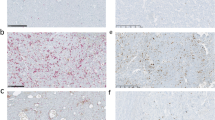Abstract
Resectional therapy has been accepted as the only curative therapy for hepatocellular carcinoma (HCC). Unfortunately, it is estimated that only 10% of HCC are resectable at the time of diagnosis. Cytoreduction and sequential resection offer a new hope for patients with unresectable HCC. Radioimmunotherapy (RIT) is an attractive approach for cytoreduction. We have previously shown that intrahepatic arterial 131I-labelled anti-HCC monoclonal antibody (131I-Hepama-1 mAb) could be used safely in combination with hepatic artery ligation for treatment of unresectable HCC, and encouraging results have been achieved. In this paper, the long-term survival and the prognostic factors in HCC patients treated with radioimmunotherapy will be analysed. Sixty-five patients with surgically verified unresectable HCC were treated with hepatic artery ligation plus hepatic artery cannulation and infusion from 1990 to 1992. Thirty-two patients were enrolled in a phase I–II clinical trial with infusion of 131I-radiolabelled anti-HCC monoclonal antibody (Hepama-1 mAb) via the hepatic artery (the RIT group). Another 33 patients formed the group treated with intrahepatic-arterial chemotherapy (the non-RIT group). T cell subsets were measured in 24 patients and human anti-(murine Ig) antibody (HAMA) were monitored in the RIT group. The 5-year survival rate was significantly higher in the RIT group than in the chemotherapy group, being 28.1% compared to 9.1% (P < 0.05); this was mainly a result of better cytoreduction and a higher sequential resection rate (53.1% compared to 9.1%). Significant prognostic factors in the RIT group included tumour capsule status and the number of tumour nodules. HAMA incidence and CD4 + T lymphocytes influenced short-term, but not long-term survival. It is suggested that intrahepatic-arterial RIT, using 131I-Hepama-1 mAb, combined with hepatic artery ligation might be an effective approach to improve long-term survival in some patients with unresectable HCC, which may successfully be made resectable by intra-arterial infusion of 131I-Hepama-1 mAb.
Similar content being viewed by others
Author information
Authors and Affiliations
Additional information
Received: 21 April 1997 / Accepted: 14 January 1998
Rights and permissions
About this article
Cite this article
Zeng, ZC., Tang, ZY., Liu, KD. et al. Improved long-term survival for unresectable hepatocellular carcinoma (HCC) with a combination of surgery and intrahepatic arterial infusion of 131I-anti-HCC mAb. Phase I/II clinical trials. J Cancer Res Clin Oncol 124, 275–280 (1998). https://doi.org/10.1007/s004320050166
Issue Date:
DOI: https://doi.org/10.1007/s004320050166




